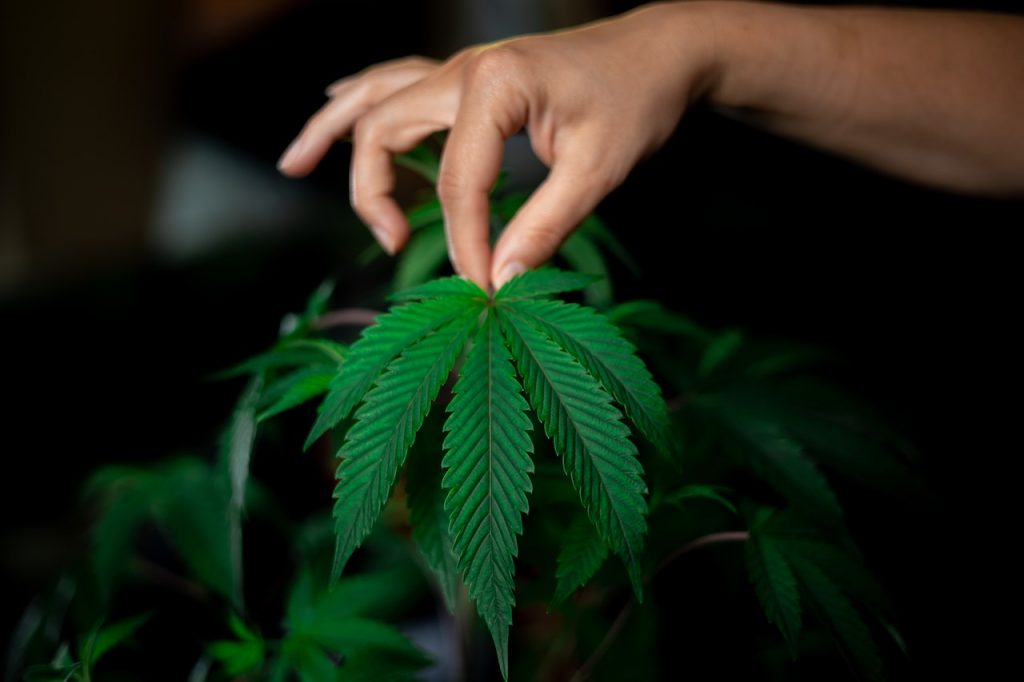The relationship between cannabis use and psychosis is complicated. There are many competing theories, including the possibility that Cannabidiol (CBD) may reduce psychosis. Other studies show that cannabis consumption may worsen psychotic experiences, such as paranoia, hallucinations, and anxiety. The results of a meta-analysis found a significant correlation between cannabis use and psychotic outcomes. Regardless of which theory is correct, there are some important questions to ask.
Cannabidiol (CBD) reduces psychosis
Studies have shown that cannabidiol, or CBD, decreases psychotic symptoms in patients with schizophrenia. This compound has antipsychotic properties without directly acting on dopamine receptors, making it a promising candidate for the treatment of psychotic disorders. However, further research is needed to fully understand how CBD works in patients with schizophrenia. In this article, we will explore the mechanism of action of CBD on psychotic symptoms.
This study involves a randomized, double-blind, parallel-group, active-comparator clinical trial in which 130 patients with recent diagnosis of schizophrenia will be studied. They must not be receiving any other treatment, such as antipsychotics. Participants will be randomized to receive either cannabidiol 600 mg or risperidone 4 mg (two milligrams) or placebo. They will undergo clinical assessments at 1, 3, and five weeks, and a telephone assessment in between. Participants will also undergo a safety visit two weeks after completion of treatment. The primary outcome is cessation of cannabis use and reduction in psychotic symptoms.

Cannabis increases paranoid experiences
The associations between cannabis and psychosis are not clear-cut. One study, by Myles and colleagues, looked at 41 samples and found that marijuana and tobacco users had a more rapid onset of psychosis. Cannabis users were diagnosed with psychosis 32 months earlier, whereas tobacco smokers were diagnosed with psychosis 2 weeks later. The researchers found no moderating effect of sex, a potentially relevant factor.
In the same study, cannabis users’ psychotic experiences were found to be more frequent and to be less invasive than those of non-users. The results indicated that cannabis use disproportionately increased the risk of psychosis for individuals with high polygenic risk scores. Cannabis users’ psychotic experiences were also significantly associated with auditory and visual hallucinations. Further, cannabis users had 67% greater odds of developing delusions of reference and 7% increased odds of experiencing psychosis.
Cannabis increase hallucinations
Recent research has revealed a strong link between cannabis and psychosis. Cannabis users experience more intense psychotic symptoms, including auditory hallucinations. In fact, marijuana users are more likely to have paranoid schizophrenia. This is largely due to the association between cannabis and psychosis. However, cannabis use may play a role in psychosis as well. In this article, we’ll discuss the potential link between cannabis and psychosis and how it can cause these symptoms.
According to some researchers, there’s no direct connection between marijuana and schizophrenia, but there’s plenty of speculation. One theory holds that cannabis is associated with increased hallucinations, while another suggests that it can be the cause. Cannabis and psychosis have been associated for centuries, but the causes are unclear. The best explanation is to examine the role of the brain’s dopamine receptors, which are responsible for triggering psychotic symptoms.
Cannabis increase anxiety
A recent systematic review of studies examining cannabis and mental health concluded that the cannabinoids THC and CBD may increase the antianxiety effects in humans. However, there are some important caveats about this finding. While this effect may be largely a placebo effect, it could also be due to THC being psychoactive. This article summarizes the results of this review and discusses the limitations of the research.
In one study from the US, researchers studied frequent cannabis users to determine whether this habit protected them from the negative effects of THC. They compared the results of 30 cannabis users with those of 22 healthy volunteers. They found a significant correlation between cannabis intake and anxiety, with frequent cannabis users showing smaller increases than healthy controls. However, there are still some unanswered questions. It is possible that cannabis may also increase anxiety in some people, and further research into the topic is necessary to determine its effectiveness.
Cannabis increase delusions
If you have ever used cannabis, you’re aware of the effects it can have on mental health. The combination of psychoactive substances, such as cannabis, can trigger delusions, grandiosity, and other negative mental health effects. Hallucinations are experiences a person perceives as real that are based on auditory or visual cues. In addition to delusions, cannabis can increase the frequency of depression and anxiety.
In a study, researchers examined the relationship between cannabis and presynaptic dopaminergic function in patients with CIP. They found that cannabis use is associated with decreased dopamine synthesis, but CIP was not. This suggests that cannabis and psychosis do not share the same neurobiological mechanism, which may explain the differences in the symptoms between the two conditions. This finding suggests that there are other, more effective treatment options for CIP, including addressing the associated cannabis use disorder.





Phenix Health delivers online health services 24/7 provided by Australian doctors and healthcare professionals.